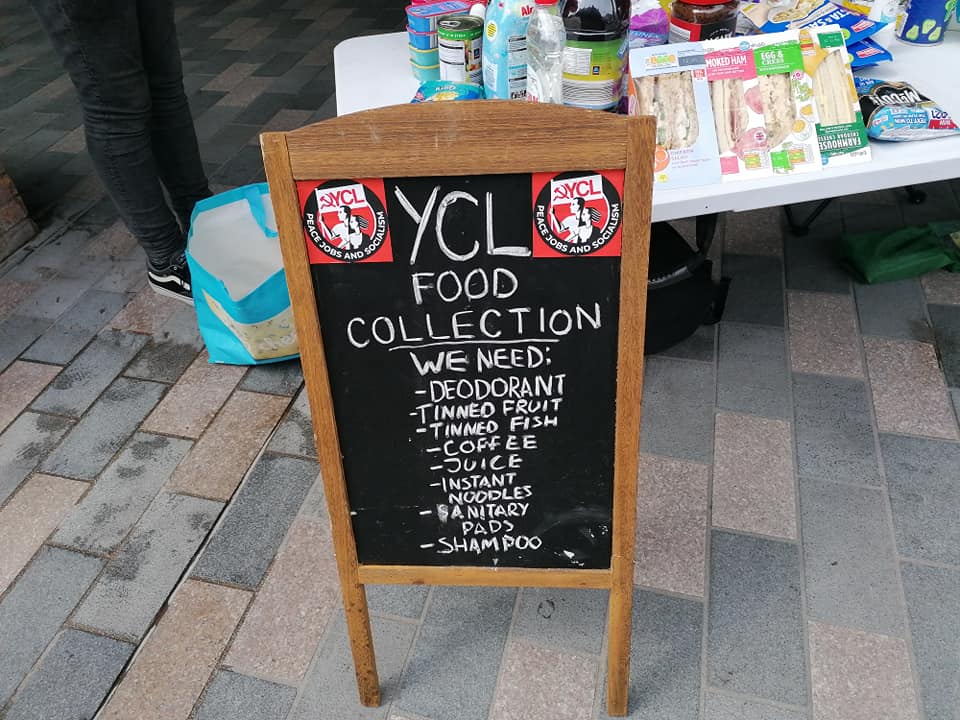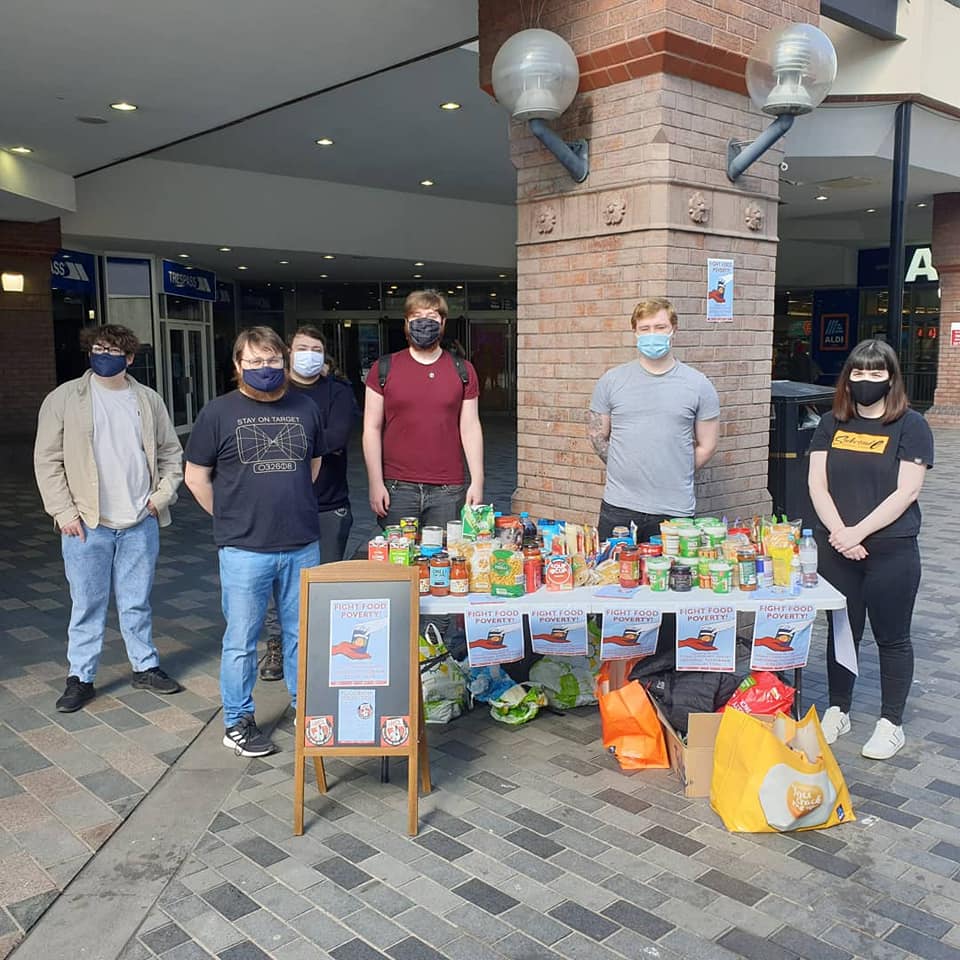Working people in the UK, one of the wealthiest nations in the world, are struggling to provide for their families. The situation is only exacerbated by rising living costs and stagnant wages. Many workers have had their title as ‘essential’ dropped, and are now back to being labelled ‘low skilled’.
This is why the YCL is highlighting food poverty with actions such as food bank collections. Of course, we enjoy the collections and want to help give extra supplies to local food banks, but we would not have to do this every few weeks if workers were not exploited to the extent that they are. Food banks and charitable systems seem innocent, but treat people’s lack of basic necessities as simply a part of capitalism that the wealthy can engage with when they want to feel better.
As written in the Communist Manifesto, it is simply “redressing social grievances” in order for the bourgeoisie to maintain power and save face. Looking at examples like the ‘Giving Pledge’, where billionaires from around the globe pledge to give money to charitable organisations and causes, the hypocrisy of bourgeois socialism becomes clear.

The Trussell Trust, the largest foodbank charity in Britain, have found that there has been a huge increase in the number of emergency three-day food packs given out, with the most recent figure being 1.3 million packs distributed last year. This is made more upsetting when contrasted with statistics from 2010, when just over 40,000 food packs were distributed. Increasing food and gas prices combined with cuts to Universal Credit have forced more and more families into food poverty.
The Tory government who publicly applauded essential workers during the national lockdowns last year have seen thousands of families enter food poverty and done nothing. This only clarifies points made last year: applause doesn’t pay the bills or put food on the table. The working people of Britain do not need empty gestures, they need direct action.
These food bank collections were part of what made me want to become a YCL member. I felt that there were very few organisations that had this devotion to action, instead choosing to simply share posts on social media and not focus on improving people’s material conditions. I liked that the YCL strongly opposes this kind of ‘slacktivism’, and takes strides to both educate its members and friends, but also to help and empower the working class in a real and material way. I’ve done volunteering work throughout my teenage years, but a lot of this work was either not constructive, or had ulterior motives. Meeting League members and seeing how focused they were on making a tangible difference and building links with the community made me realise how ineffective online activism is.
When I first joined the Merseyside branch, there were collections once a month, but recently they have become more frequent, with collections taking place every 2 weeks. We are also looking to start putting pressure on local councils to tackle food poverty at the root, and to combat the issues that often arise alongside food poverty, such as unstable housing or homelessness.
We often have vulnerable people approach us while we’re running these collections and ask to take food and water, who would otherwise be unable to access food banks. This highlights a problem with current systems – not only are food banks themselves a sign that people in this country do not have access to such a basic necessity, but also that food banks as a resource are not an easy option for the homeless and most vulnerable in our nation. The YCL acknowledges that socialism is the solution to a system which is starving and exploiting the working class in favour of profit for the wealthy.
Amelia Smith, is a member of the YCL’s Merseyside branch



